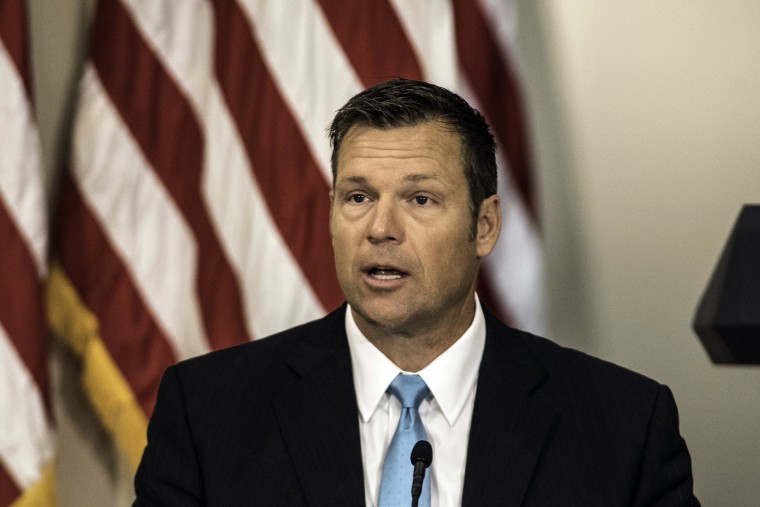Facing a revolt over privacy concerns, President Donald Trump's vote fraud commission has told state officials that any sensitive data the panel receives will be kept confidential.
The commission sent a letter Wednesday to state officials, again pressing them to hand over massive amounts of voter data after nearly every state refused to fully comply with the panel's first request, but pledging the information will be safeguarded.
"I want to assure you that the commission will not publicly release any personally identifiable information regarding any individual voters or any group of voters from the voter registration records you submit," the letter states.
The new letter also states that the panel will properly "dispose" of the data after it’s collected and the only information that will be made public are "the statistical conclusions drawn from the data."
Kansas Secretary of State Kris Kobach, the vice-chair of the Presidential Advisory Commission on Election Integrity, reiterated in the letter that the commission wants states to hand over public voter data, specifically “information that is already available to the public under the laws of your state.”
This letter is a break from the group's June 28 letter, which asked for data that some state officials and privacy experts deemed sensitive or confidential, including partial Social Security numbers, felony convictions and military status.
The new request came after a federal judge recently denied a motion filed by the Election Privacy Information Center earlier this month that sought to halt the collection of data because the panel had not done a privacy impact assessment.
The initial request for data prompted a swift backlash from both Republican and Democratic officials. Some states refused to hand over any data and others were prevented from doing so by laws in their states. Other states, including Kansas, would only hand over publicly available information.
As the new letter made the rounds, state election officials quickly responded.
Alex Padilla, a Democrat who serves as California secretary of state, reiterated that he would not hand over any data under any circumstances.
"Once again, the President’s sham election commission has requested California voters’ personal data. Once again, my response is no," he said in a statement. "The commission’s new request does nothing to address the fundamental problems with the commission’s illegitimate origins, questionable mission or the preconceived and harmful views on voting rights that many of its commissioners have advanced."
Kentucky Secretary of State Alison Grimes, a Democrat, told Kobach to "kick rocks."
"On behalf of 3.3 million Kentucky voters, the answer is again no," she said in a statement. "The compilation of every American voter’s information would build a national voter registration database, which s unnecessary to improving our elections…and puts voters’ privacy and personal data at risk."
The commission was created in May by Trump through executive order to study "vulnerabilities" in the American election system. It was formed on the unfounded claims by Trump that millions voted "illegally" in 2016 election.
Experts have concluded that widespread voter fraud is extremely rare.

